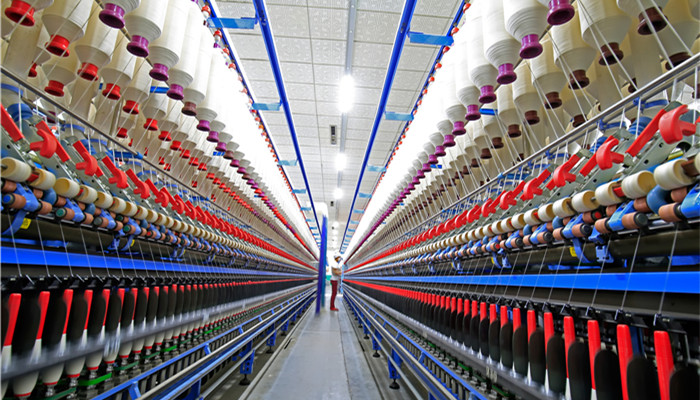
The output of reactive dyes continues to decline, and industry development faces challenges
Reactive dyes, also known as reactive dyes, refer to water-soluble dyes that contain one or more reactive groups in their molecular structure and can react chemically with fibers and textiles. Reactive dye production methods include pad dyeing and dip dyeing. According to different reactive groups, reactive dyes can be divided into vinyl sulfone reactive dyes and symmetric triazobenzene reactive dyes.
According to the “2022-2027 China Reactive Dyes Market Analysis Feasibility Research Report released by the Industrial Research Center, in recent years, affected Affected by factors such as national environmental protection policy restrictions and deepening supply-side structural reforms, reactive dyes, as a high-energy-consuming and high-pollution industry, have seen their output continue to decline. According to statistics from the China Dyestuff Industry Association, my country’s reactive dye production reached 211,000 tons in 2020, a year-on-year decrease of 4.5%. As small and medium-sized enterprises with backward production capacity and serious pollution are gradually eliminated from the market, the quality of reactive dyes in my country will be greatly improved, and output will gradually pick up.
Reactive dyes have the advantages of strong applicability, wide chromatography, convenient production, low cost, and friction resistance. They are widely used in various fiber products and textiles. Taking cotton textiles as an example, according to data from the National Bureau of Statistics, my country’s cotton yarn output will reach 17.053 million tons in 2021, a year-on-year increase of 7.3%. At the same time, reactive dyes can also replace chromium mordant dyes and acid dyes and are widely used in wool dyeing. As the application fields continue to expand, the market space for reactive dyes will further grow.
In recent years, affected by the COVID-19 epidemic and other factors, Southeast Asia, as the main production area of reactive dyes, has experienced a sharp decline in output and has been unable to meet export demand. This has resulted in a large number of orders returning to the Chinese market, driving the continued growth of my country’s reactive dye exports and achieving an industry trade surplus. . According to statistics from the China Dyestuff Industry Association, in the first half of 2021, my country’s import volume of reactive dyes reached 9,000 tons, and its export volume reached 21,000 tons. Zhejiang and Hubei are my country’s main export destinations for reactive dyes, accounting for nearly 70% of my country’s total export volume.
In terms of market competition, my country’s reactive dye industry has a low concentration level and a large number of small and medium-sized enterprises. Jiangsu Jinji Industrial, Zhejiang Longsheng Group, Shanghai Aromatic Amine Chemicals, Zhejiang Runtu Co., Ltd. and Zhejiang Jihua Group are well-known reactive dye suppliers in my country. As a national key high-tech enterprise, Zhejiang Runtu Co., Ltd. has an annual production capacity of reactive dyes of up to 100,000 tons, ranking first in the industry.
Industry analysts said that reactive dyes are a subdivided field of dyes. Affected by national environmental protection policies and other factors, my country’s reactive dye output has increased. decline. At present, my country’s reactive dye production enterprises are small in scale and have low production capacity, resulting in the slow development of the reactive dye industry. However, from the perspective of import and export, my country’s reactive dye export scale has continued to expand in recent years, and there are still opportunities for industry development.

 微信扫一扫打赏
微信扫一扫打赏

